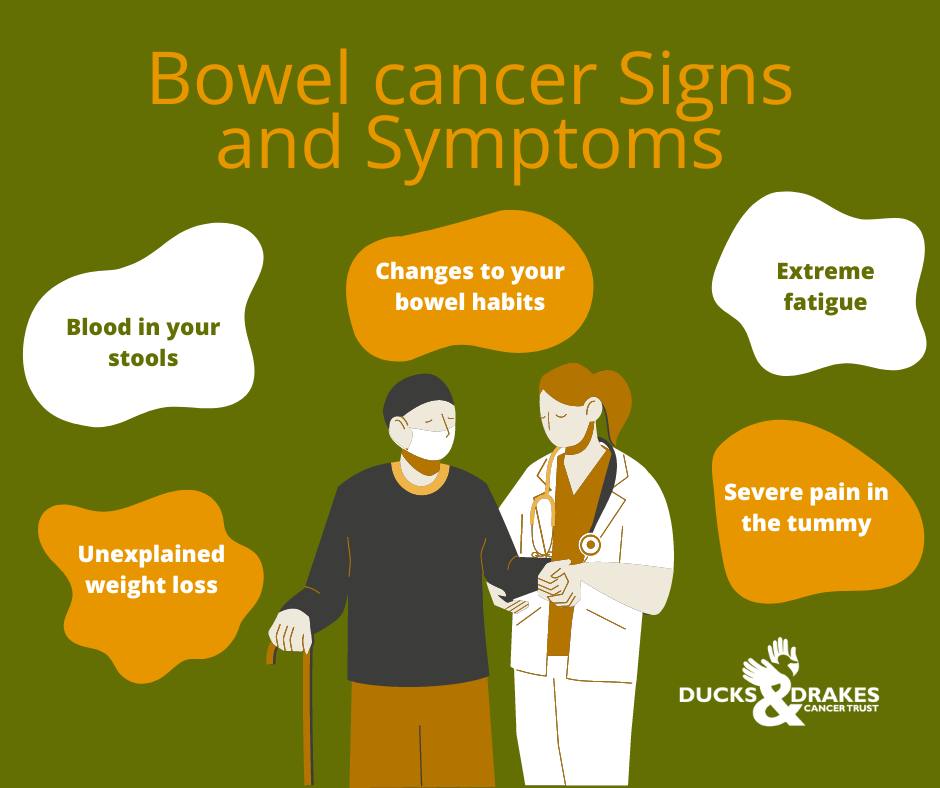About Bowel / Colorectal Cancer...
What is bowel cancer? |
Facts & stats |
|
Bowel cancer is also referred to as colorectal or colon cancer. Nearly all bowel cancers develop in the large bowel - two-thirds of these are in the colon and one-third in the rectum. Most bowel cancers develop from polyps which are usually non-cancerous and, once detected, can be removed easily if caught early enough.
Symptoms of bowel cancer
The symptoms of bowel cancer can be:
Risk FactorsThings that increase your risk of getting bowel cancer include:
Treatment and outlook
Bowel cancer can be treated using a combination of surgery, chemotherapy, radiotherapy and, in some cases, biological therapy. As with most types of cancer, the chance of a complete cure depends on how far the cancer has advanced by the time it is diagnosed.
If bowel cancer is diagnosed in its earliest stages, the chance of surviving a further five years is 90%, and a complete cure is usually possible. However, bowel cancer diagnosed in its most advanced stage only has a five-year survival rate of 6% and a complete cure is unlikely. Screening and early detection
Can I prevent it?
Whilst the exact causes of Bowel cancer are unknown there is plenty you can to reduce your chances of developing bowel cancer. Get started with these simple steps:
1. Exercise. The more active you are, the more you reduce your chances of developing bowel cancer. 2. Eat foods that are rich in fibre such as fruit and vegetables, nuts, seeds and wholegrain cereals. 3. Replace white bread, pasta and rice for wholegrain i.e. brown or grain alternatives. 4. Cut down on red meat, and avoid processed meats, such as processed ham and meats. Cut down on fatty meats e.g. bacon. Fish and poultry are good alternatives to red meat, as are soya and other vegetarian substitutes. 5. Limit your alcohol intake. Bowel cancer has been linked to a heavy intake of alcohol (+ 4 units of alcohol a day for men). 6. Get to know all the allium family - onions, garlic, shallots, chives and leeks are all good for your gut. 7. Don’t hold it. If you need to go to the toilet, do so as soon as you can. 8. Always drink your daily recommended water, most healthy adults need 1.5-3litres (6-8 medium glasses). 9. Lastly and most importantly, stop smoking. Quitting can be hard but enlist the help of friends and family. The NHS also offers free advice on quitting, contact your local doctor’s surgery for further information. Remember it’s never too late to give up smoking and reap the benefits. Patients who are still smoking at the time of their diagnosis have shorter survival times than those who have already quit. If you would like to talk to us or if you require any further information, please email Ducks & Drakes |
Prevalence
|


